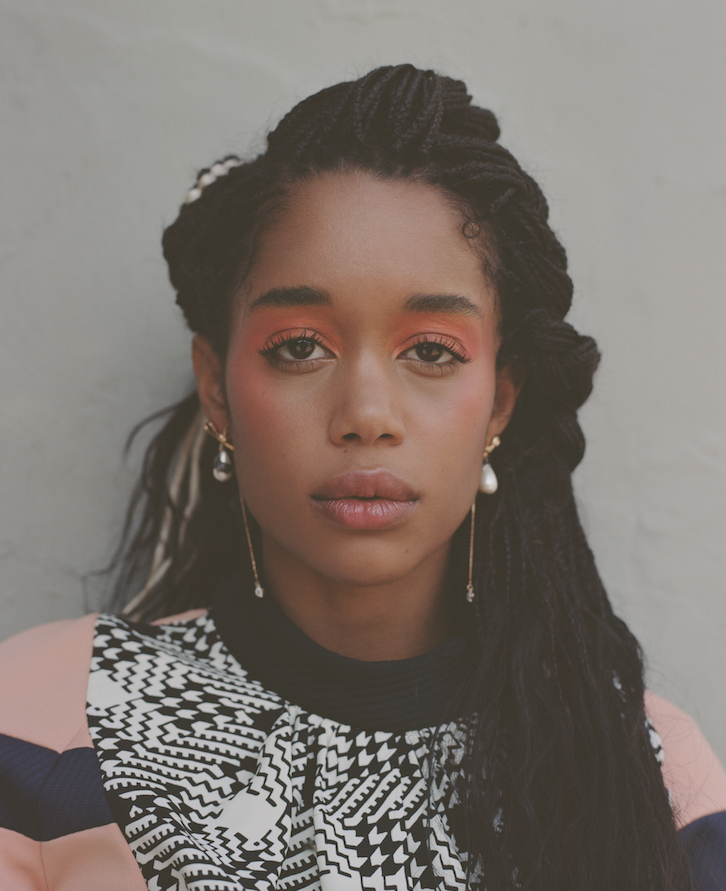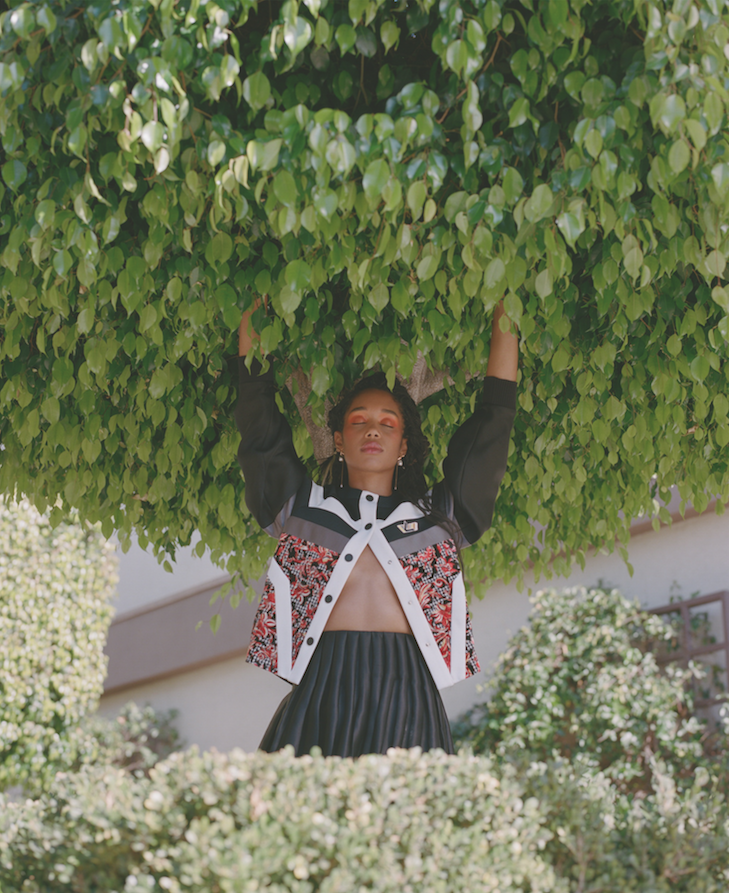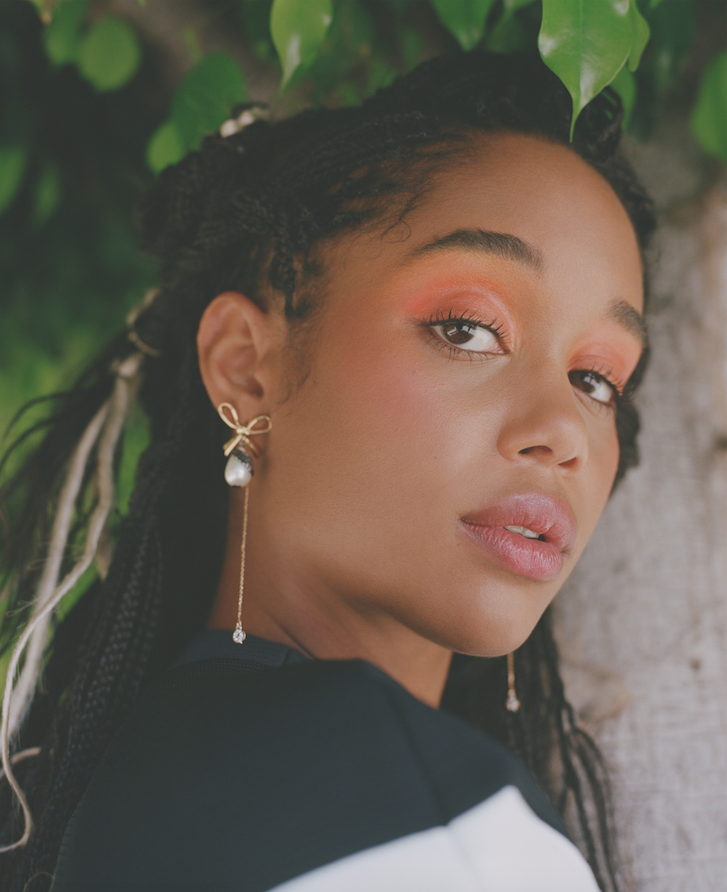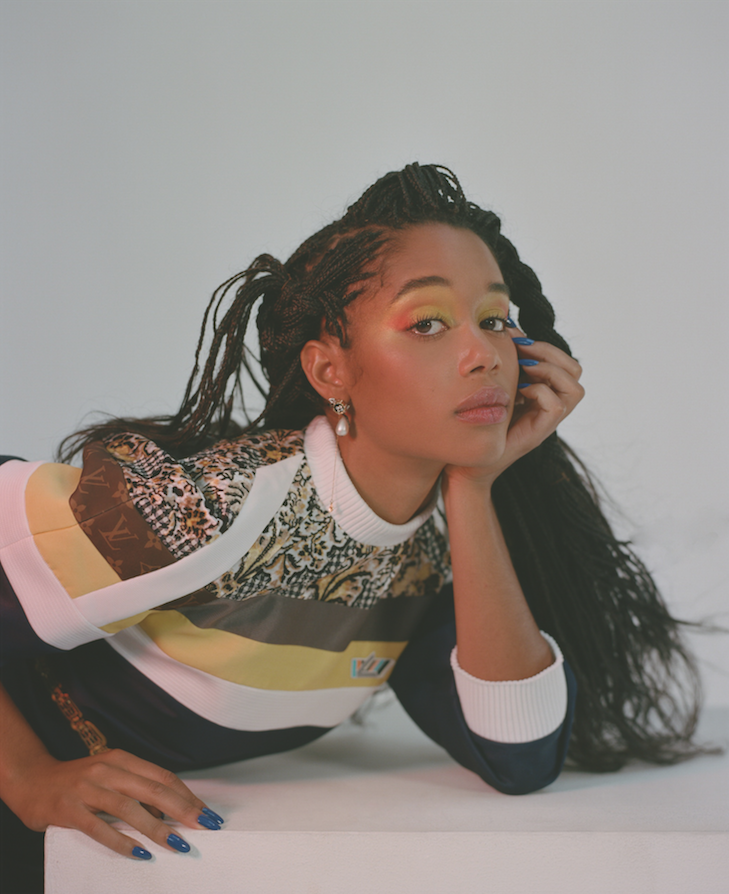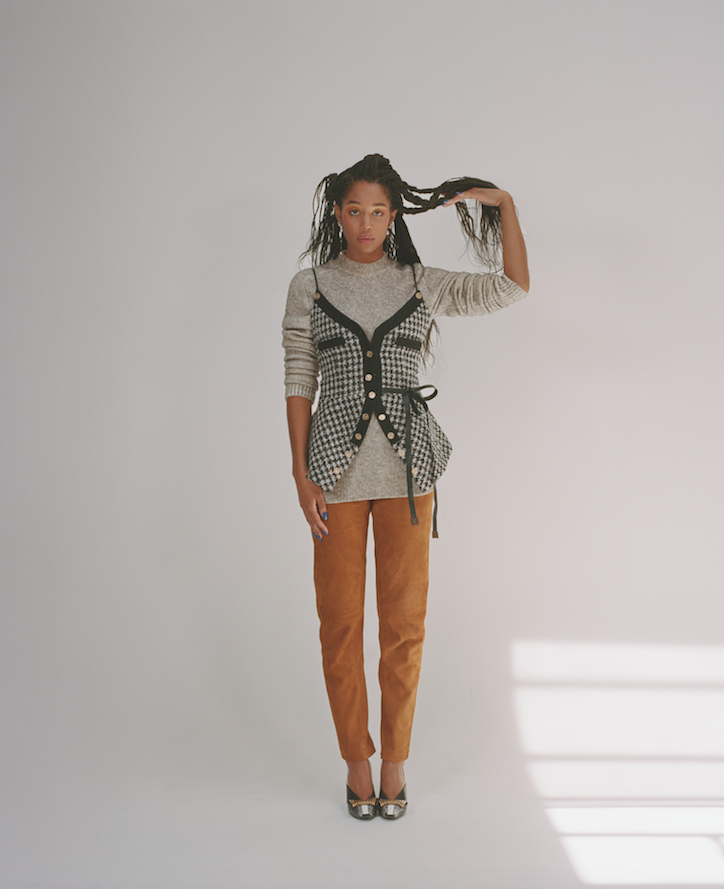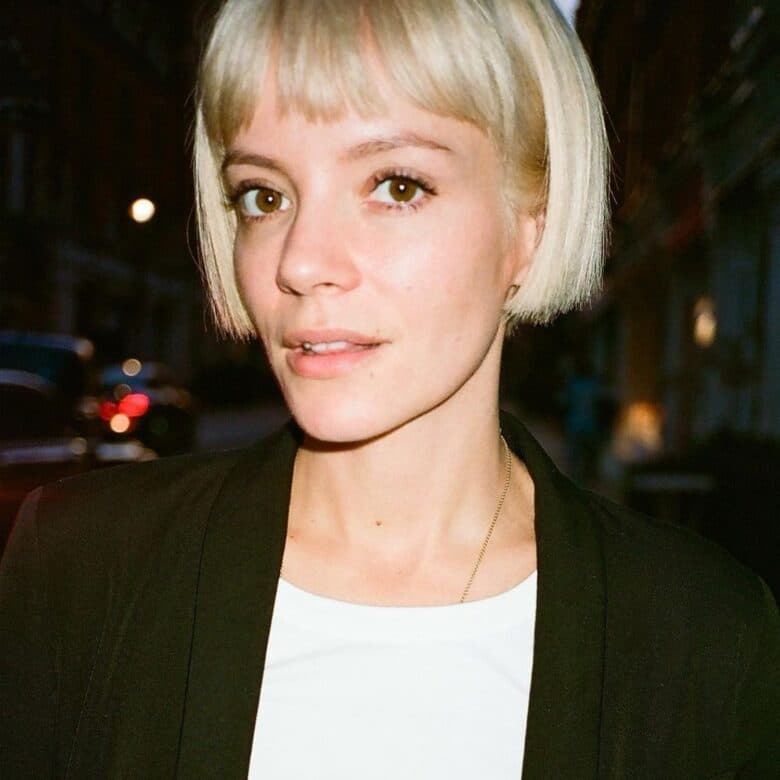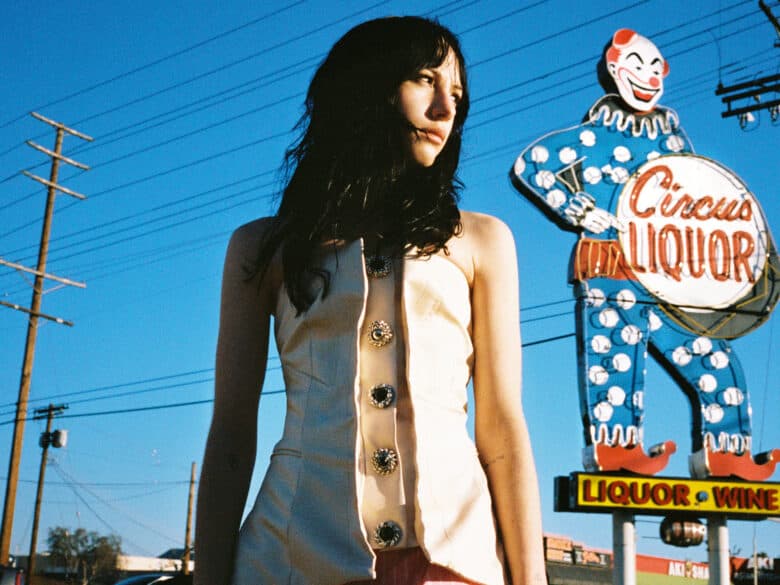Hunger 15 cover star Laura Harrier on Spike Lee and Hollywood’s new era
The project which Spike Lee wanted to discuss was, of course, BlacKkKlansman, his film depicting the true story of Ron Stallworth, the first African- American detective to serve in the Colorado Springs Police Department who then infiltrated the Ku Klux Klan in the late 70s. Winning the Grand Prix at this year’s Cannes Film Festival and lauded with critical acclaim from all sides, the film has thrust Laura Harrier into the spotlight. But after speaking with her, you get the sense that that’s exactly where she’s meant to be. Poised and considered in her answers, she’s seemingly unfazed by the media circus surrounding her name and new it-girl status, saying that “there’s no manual you get given when you become famous. I’m just trying to figure out how to be myself.” Her ease is all the more impressive when you remember that BlacKkKlansman is only her second major film, following 2017’s Spider-Man: Homecoming in which she played Peter Parker’s love interest Liz Allen.
“I didn’t really know what to expect [with BlacKkKlansman],” she says. “I tend to go into everything with no expectations because you just never know what people will think. Obviously getting to work with Spike was a major attraction, but then I knew that we would be telling a really important story that, despite being set in the 70s, would be incredibly timely. Seeing how positive the reaction has been and how people have been affected is really exciting.”
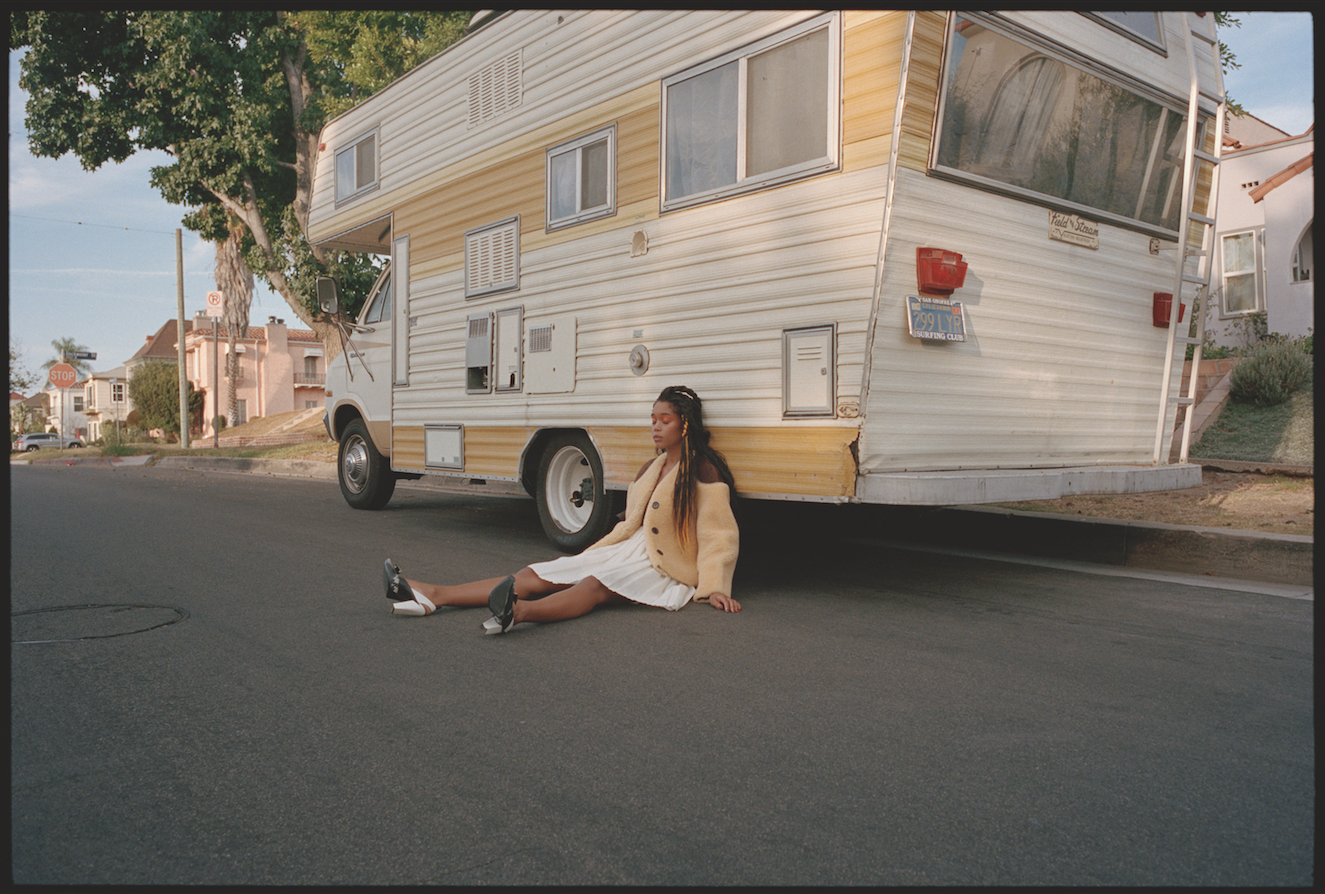
Dealing with racism, white supremacy, police brutality, and sexual assault against women of colour, the film hits home, drawing eerie parallels with Trump’s America and our modern dystopia. The end of the film even features footage from last year’s alt-right rally in Charlottesville, a decision by the director that Laura says the cast were unaware of at the time of filming but that made it all the more poignant.
“It’s hugely important that films like this are being released now,” says Laura, “even though Spike has been doing this since the early 80s. Art needs to reflect the world and for too long there has been such a narrow view of what that is, basically a straight white man’s view. It’s really exciting that other people’s voices are starting to be heard so that we are able to address things like police brutality and white supremacy,” she says. “And for myself, as a black artist, that’s what is important – to reflect real life and start these important conversations,” she says.
“I definitely felt really invigorated to be a part of telling this story. That feels like my form of activism, making art and telling stories through lm that affects people and that they can learn from.”
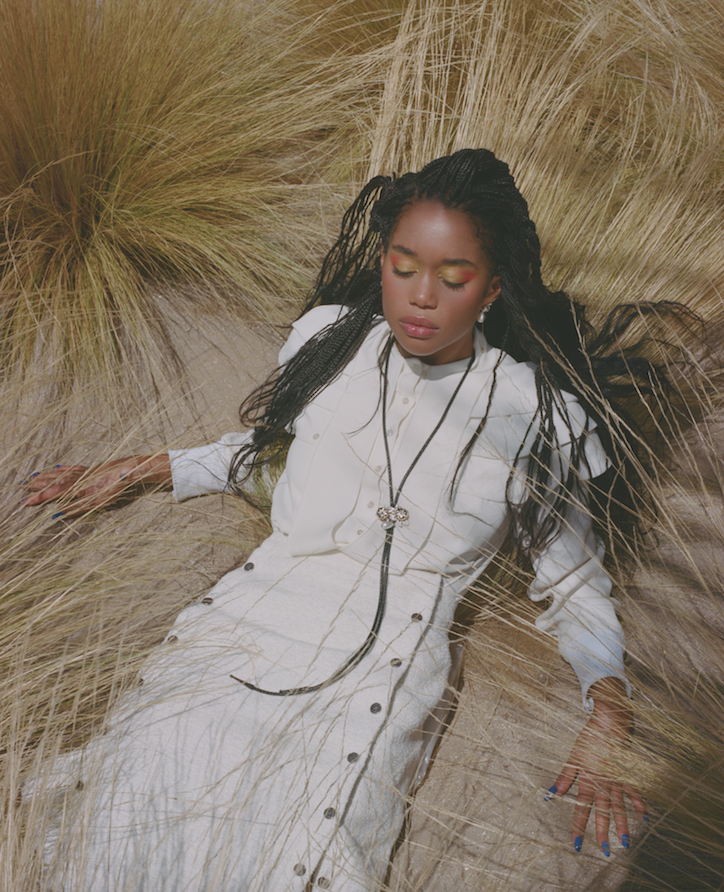
Being part of BlacKkKlansman was Laura’s own learning curve, from watching the “exuberant” way Spike worked on set to the research that she undertook. To prepare for her role of Patrice Dumas, the director gave her an extensive reading list, including work by celebrated activist Angela Davis, and even made her write a full autobiography in order to understand the depth of her character. “I also met Kathleen Cleaver, who was one of the leaders of the Black Panthers, and that was hugely helpful to get her insight into her life and how she started in the movement,” she says. “As well as that, I contacted people that were in the black student union at Colorado College in the 70s. They were just normal people who had been involved, which was really inspiring. Patrice then became an amalgamation of the different people that I met and spoke to, because I didn’t want to just have the famous faces of the movement highlighted.”
When people think of the Black Panther Party it is largely dominated by the male leaders – founders Huey P Newton and Bobby Seale, and even Malcolm X, who was assassinated the year before the party was founded but whose beliefs informed their ideology – but Laura is quick to point out that it’s the stories of the female members that tend to get sidelined, and those are the ones she wanted to bring back into the spotlight. “There were so many women involved. In fact, at the height of the Panthers the majority of the members were women, but you just don’t hear those stories at all,” she says. “We always see the macho, male faces of Black Power, but it was a lot of women making things happen behind the scenes and not getting the credit – as usual!
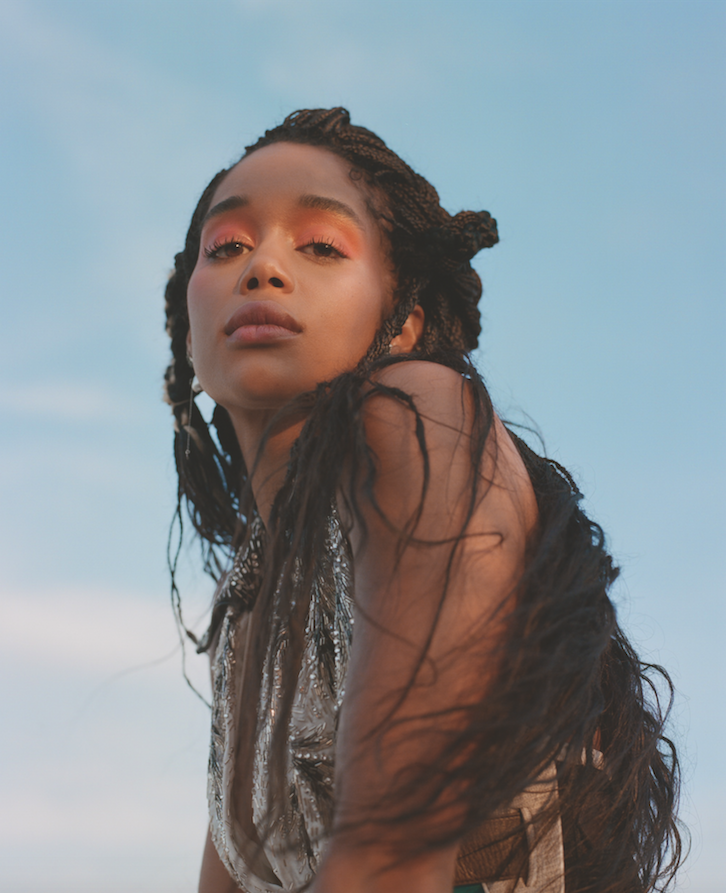
“Talking to Kathleen, though, I was struck by how she never set out to be this figurehead of a movement, she just believed in something and she stood up for it. I think sometimes when we look back on people that are considered American heroes they seem untouchable, but she was just this young 21-year-old woman that became involved with activism and continued to use her voice to do good for other people – and that really stayed with me.
“This experience definitely strengthened parts of me that were already there – being proud to be black and wanting to celebrate the history of my ancestors, all the powerful black women who have gone before me, who had really tough lives and fought hard to survive so that I could be here doing this today, telling their stories in a way that connects people all over the world.”
That is the power of film: it can be a vehicle for a message and can often pierce the zeitgeist in ways that other media can’t, but Laura notes its limitations too – progressive policy-making has to come from the top. “I don’t know if a movie can change the world, but I do think that it can get people thinking and talking and looking at our society in a way that maybe they didn’t before. I don’t think that cinema is the only thing that should hold up a mirror to society. It would be really nice if we had a person in the White House that also felt the need to do that,” she says, never mentioning Trump by name throughout our interview. I suggest that there will likely be a lot of films made about the times that we’re living through now. “I think there will be too, and that’s important. Like how Michael Moore’s films affected Bush’s presidency – there has to be a real world reaction. And I think that BlacKkKlansman is the first film to really take on this guy.”
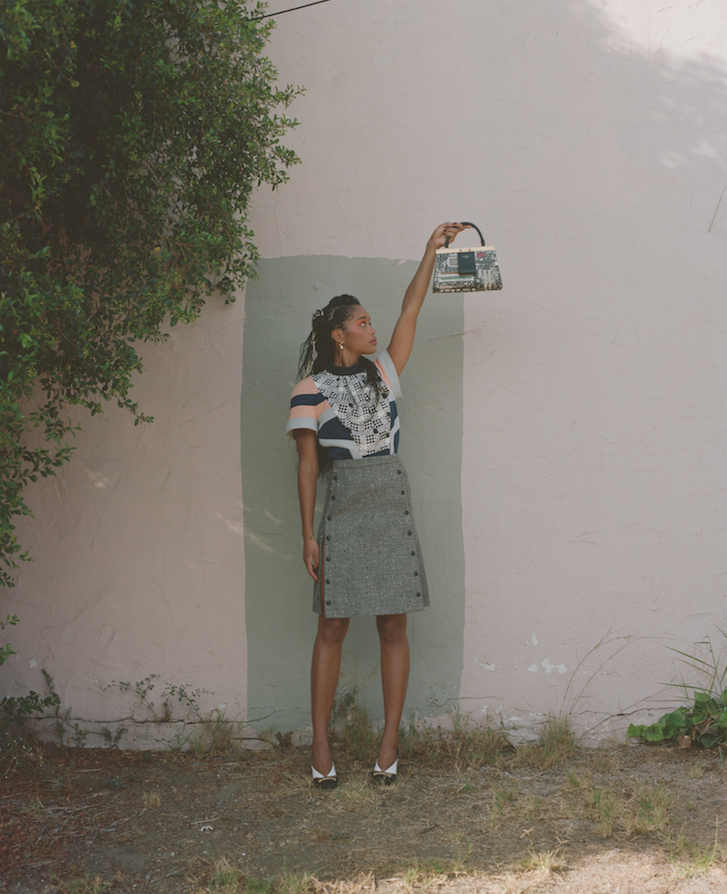
In the past, actors have often been cagey about their political affiliations and wary of strong opinions – say the wrong thing or be too controversial and that plum role goes up in a puff of smoke – and Hollywood has treated women more harshly than men for decades, but Laura is not one content to sit back, smile and look pretty. Her Instagram bio is a link to the TimesUp website and she’s been vocal in the past about supporting trans rights, intersectional feminism and voting to change gun laws in the States. At a time when the film industry is still quaking following its own reckoning, Laura Harrier is just the type of actress needed to continue kicking open the doors once firmly closed by the patriarchy.
“I think it’s a good time to be a woman in film now because we’re finally making progress,” she says. “We’re having conversations and addressing issues that have plagued women in this industry – and all industries in fact – for a long time. I’m lucky to come along at a time when these issues are being addressed in public because so many women have fought, struggled and suffered for where we are now. But I don’t think it’s equal by any means, especially for women of colour, and there is still a lot of work to do.”
For now, though, Laura is taking her time to plot her next move, citing Lena Waithe and Sofia Coppola as collaborators on her bucket list. “I just want to keep working with amazing filmmakers and telling stories that I believe in that are important and relevant to our times,” she says. “But,” she pauses, “I wouldn’t mind having my own action moment. Maybe a Bond Girl… or just James Bond. We need more female action heroes.” I wouldn’t bet against her.
BlacKkKlansman is out now.
